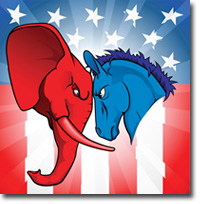The Wall Street Journal ran an editorial earlier this week about the opposition that has stirred around the regulations proposed by the IRS on political activity by 501(c)(4) social welfare organizations. Today is the final day of the comment period, and already there have been more than 69,000 comments—most of them negative. As the editorial points out, this is an incredible response for regulations.
We’ve blogged about these regulations before. As a brief recap, the regulations were spurred by controversy last year around scrutiny of certain 501(c)(4) organizations, though in fact uncertainty around these organizations and permissible political activity has existed for years. 501(c)(4) organizations must primarily pursue their mission, and can engage in partisan political activity only to a certain degree. However, it has never been clear where the line is crossed with respect to “too much” such activity—or even what types of activity should count toward this limit.
The proposed regulations would apply only to 501(c)(4) organizations (not 501(c)(3) charities or other exempt organizations, though the IRS has sought comments on whether similar treatment is warranted for other organizations). They essentially take the approach of giving more black-and-white guidance in terms of what is considered political activity (termed “candidate-related political activity” under these regulations)—though at the expense of snagging certain activity that may not have been considered political in the past if done on a non-partisan basis. For example:
- Conducting a voter registration or “get-out-the-vote” drive;
- Preparing a voter guide that refers to clearly identified candidates;
- Hosting an event (e.g., a debate) within 30 days of a primary election or 60 days of general election at which one or more candidates appear as part of the program; and
- Any public communication within 30 days of a primary election or 60 days of general election that refers to clearly identified candidates.
However, nonprofits on both sides of the political landscape have spoken up against the regulations. Cathy Duvall of the Sierra Club argues that the regulations would harm non-political efforts to communicate with members and the public about issues related to their mission. This is likely referring to issue advocacy or lobbying efforts engaged in by these organizations, where for example the organization will explain potential legislation that would have a bearing on their mission and perhaps ask the members or the public to contact a legislator who could affect that vote. To be clear, social welfare organizations are allowed to engage in unlimited lobbying so long as it is related to their mission. And yet, under the new regulations, in certain situations mentioning the name of a legislator who happens to be up for re-election in the context of a lobbying communication appears to be considered candidate-related political activity.
An important point was made by Nan Aron of Alliance for Justice, which is that most 501(c)(4)s aren’t massive, uber-political outfits like Karl Rove’s GPS, but instead are small organizations that are actively involved in many aspects of civic life:
“They weren’t invented in the last election cycle; they’ve been around for generations. Their purpose isn’t to hide donors, it’s to advance policies. These groups are involved in elections, because it’s often impossible to advance a policy cause without being involved in the political process.”
There are many such organizations caught up in this controversy. As has been the case with other recent tax reform efforts (such as the Pension Protection Act of 2006, which imposed new regulations on donor-advised funds and some supporting organizations), efforts to address some bad actors can end up tying the hands of many more organizations who didn’t necessarily do anything wrong.


